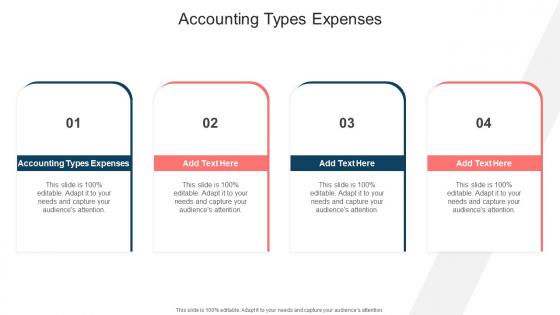
They are incurred for a specific product, and if they were not incurred, the production of that specific product would not be possible. Generally speaking, an expenditure is the total cost of a transaction, while an expense is that transaction’s offset to a company’s revenue. For example, if a company chooses to spend $1000 on marketing or advertising campaigns for their products and services, then they have spent an expense of $1000. An expense can also be an expenditure whose benefit is finished or enjoyed immediately or within the period of one accounting year. The dollar amount of the resources used up by the firm during a particular period of time in earning revenues.
Ask a Financial Professional Any Question
- They cover things like advertising, rent for your store, and wages for your sales staff.
- Variable expenses are those business costs that vary with the level of activities or volume of production.
- In fact, without incurring expenses, you would not be able to generate revenue from your business.
- It can help business owners make informed decisions, and can lead to better budgeting overall.
- Accurate record-keeping facilitates the tracking of revenues, expenses, and profitability, ensuring that the business is aware of its financial position.
It can remarkably reduce manual effort and minimize errors, leading to more accurate bookkeeping. However, the electricity used to power the plant is considered an types of expenses in accounting indirect cost because the electricity is used for all the products made in the plant. Expenses are deducted from revenues to arrive at the company’s net income.
Financial Expenses
Expenditures can be capital in nature, such as purchasing equipment, or revenue in nature, like paying for utilities. Prepaid expenses represent advance payments for goods or services that would be received or consumed in future periods. The items are first recorded as assets on the balance sheet from an accounting point of view since they involve acquiring future economic benefits. Once these prepaid goods or services are consumed or used up, the prepaid amount gets gradually expensed on the income statement. Examples include prepaid rent, insurance premiums, and subscriptions. Accounting mainly consists of accrued, fixed, non-operating, operating, prepaid, and variable expenses.
Is Salary Considered an Expense?
Expenses are an essential part of producing goods, delivering services, and maintaining overall functionality. Clarity and understanding of accounting expenses are important for businesses, as they impact their financial health and influence the decision-making process. Whether it is a small business or a large corporation, accurately classifying and recording different types of expenses is essential to ensuring financial statement accuracy. The type of business you run impacts the type of expenses you’ll incur. For example, an electrician might have to factor in costs such as tools and vehicles, whereas an accountant might need to pay for computer equipment and office rent. Both businesses could also share common expenses such as insurance, staff wages, and marketing and advertising costs.
How to Build Conflict Resolution Skills: Case Studies and Examples

Investors can calculate a company’s operating expense ratio, which shows how efficient a company is in using its costs to generate sales. They are expenses related to borrowing money from creditors or lenders. Examples are the origination charges for loans and interest on borrowed funds. You would have to break down your business’s expenses and revenue in your income statement.
Examples of Business Expenses
Even if a company pauses production for a month, the company needs to pay for these things. These obligations include mortgages or rent, employee salaries, insurance costs, loan payments, and property taxes. An expense is money spent to acquire something — expenses includes daily transactions everyone encounters (like paying a phone bill) and big purchases made by companies (like buying a new piece of machinery). While some people may track their personal expenses for budgeting purposes, businesses and accountants have strict guidelines on what counts as an expense. In bookkeeping, it is essential that small business owners differentiate between various types of expenses to better manage finances and optimize tax benefits. In bookkeeping, categorizing expenses accurately is crucial for financial reporting and tax purposes.
On the other hand, they also represent a continuous financial commitment, payment for which has to be made irrespective of the financial performance of the company. Effective management and control of fixed expenses are central to the maintenance of stability in finance, particularly during the lean periods that come with reduced revenues. An expense refers to the cost incurred by a business in the process of generating revenue. It represents an outflow of cash or cash equivalents to ensure smooth business operations.
Expenses are usually recurring payments needed to operate a business. Operating expense is deducted from revenue to arrive at operating income; the amount of profit a company earns from its direct business activities. Salaries, wages, and benefits expenses include the payroll cost of permanent and temporary employees of an organization for their services during an accounting period. Expense is simply a decrease in the net assets of the entity over an accounting period except for such decreases caused by the distributions to the owners.
When categorizing expenses for bookkeeping, it’s essential to understand the IRS requirements and navigate the tax code effectively to ensure that deductibles are properly accounted for. This section provides insights into IRS expectations and Publication 535 to help businesses manage their tax-related bookkeeping with confidence. Expenses must meet these criteria to be deductible from the business’s taxable income. Not all expenses may be deductible, and it’s essential for a company to consult tax regulations or a financial advisor to ensure compliance and benefit fully from allowable deductions. Fixed costs do not vary with the number of goods or services a company produces over the short term. For example, suppose a company leases a machine for production for two years.
Leave a Reply